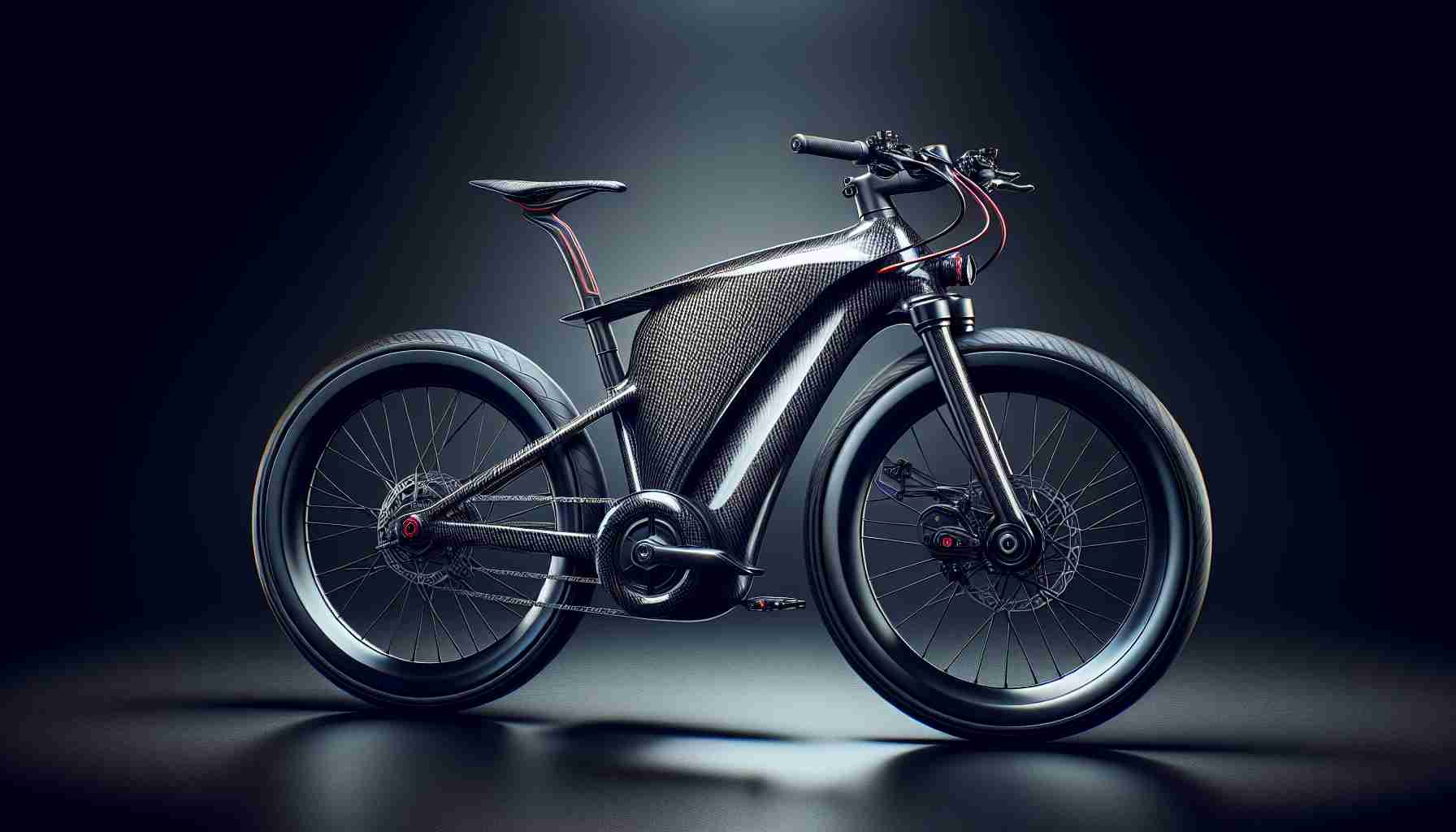When it comes to electric bikes, carbon fiber has always been associated with a hefty price tag. However, Ride1Up is changing the game with their new CF Racer1. This carbon fiber electric bike is not only affordable but also offers top-notch quality and performance for hardcore riders.
At a price of $2,295, the CF Racer1 is a fraction of the cost of other carbon fiber gravel e-bikes on the market. While it may not feature the most high-end components, it boasts a great combination of quality parts and features that cater to the needs of the majority of enthusiast riders. Pro riders may seek out different bikes, but Ride1Up focuses on the larger audience of recreational, commuter, and enthusiast riders.
What sets the CF Racer1 apart is its cyclist-oriented design. Unlike most direct-to-consumer e-bikes that have chunky tires and heavy frames, this bike is more akin to a traditional road bike. With drop bars and SRAM Rival 1 shifters, it provides a familiar feel for avid cyclists. The drop bars allow for a more aerodynamic riding position, while the shifters offer precise and easy gear changes.
The versatility of the CF Racer1’s handlebars is another standout feature. Riders can choose to ride in a low, aerodynamic position, sit taller for a more comfortable ride, or grip the middle portion of the bars for better visibility. The added bonus of having brake levers easily accessible ensures rider safety in unexpected situations, whether navigating busy city streets or tackling challenging trails.
With a 250W continuous rear hub motor and a top speed of 28 mph, the CF Racer1 delivers impressive performance. Its range of 16-40 miles, depending on riding conditions, provides ample mileage for most riders. The lightweight carbon fiber frame, weighing just 28.6 lb, further enhances the bike’s agility and maneuverability.
Ride1Up’s direct-to-consumer sales model eliminates the need for a bike shop markup, allowing riders to snag this carbon fiber gem at an unbeatable price. The CF Racer1 truly redefines what a carbon fiber electric bike can be – an accessible option for riders who crave top performance without breaking the bank.
The electric bike industry has been gaining significant traction in recent years, with more people turning to alternative modes of transportation and seeking eco-friendly options. The market for electric bikes is projected to experience substantial growth in the coming years. According to a report by Global Market Insights, the global electric bikes market is expected to surpass $25 billion by 2025, with a compound annual growth rate (CAGR) of over 7% during the forecast period.
One of the challenges in the electric bike industry has been the high price tag associated with carbon fiber bikes. Carbon fiber is known for its lightweight properties, durability, and ability to absorb road vibrations, making it a popular choice for performance-oriented bikes. However, the cost of carbon fiber has made it less accessible for the average consumer.
Ride1Up’s CF Racer1 is disrupting this trend by offering a carbon fiber electric bike at a fraction of the cost compared to other models on the market. This move opens up the market to a wider audience of riders who desire the benefits of carbon fiber without the hefty price tag.
The affordability of the CF Racer1 is attributed to Ride1Up’s direct-to-consumer sales model. By cutting out the middleman and selling directly to consumers, Ride1Up is able to eliminate the additional costs associated with bike shop markups. This allows riders to purchase a high-quality carbon fiber electric bike at an unbeatable price.
The CF Racer1’s cyclist-oriented design also sets it apart from its competitors. Rather than adopting the typical chunky frame and tires seen in many electric bikes, Ride1Up has designed the CF Racer1 to resemble a traditional road bike. This design choice appeals to avid cyclists who may be looking for an electric bike that offers a similar riding experience to their non-electric bikes.
In terms of performance, the CF Racer1 does not disappoint. With a 250W continuous rear hub motor and a top speed of 28 mph, riders can experience powerful and exhilarating rides. The bike’s range of 16-40 miles, depending on riding conditions, ensures that riders have ample distance coverage for their daily commutes or recreational rides.
Despite the affordable price, Ride1Up has not compromised on the quality of components and features. The CF Racer1 is equipped with SRAM Rival 1 shifters, which provide precise and reliable gear changes. The versatility of the handlebars allows riders to adjust their riding position based on their preferences, offering both aerodynamic advantages and increased comfort.
Overall, the CF Racer1 from Ride1Up is a game-changer in the electric bike industry. By combining carbon fiber technology, affordability, and high performance, Ride1Up has opened up new possibilities for riders who are seeking a top-notch electric bike without the exorbitant price tag.







